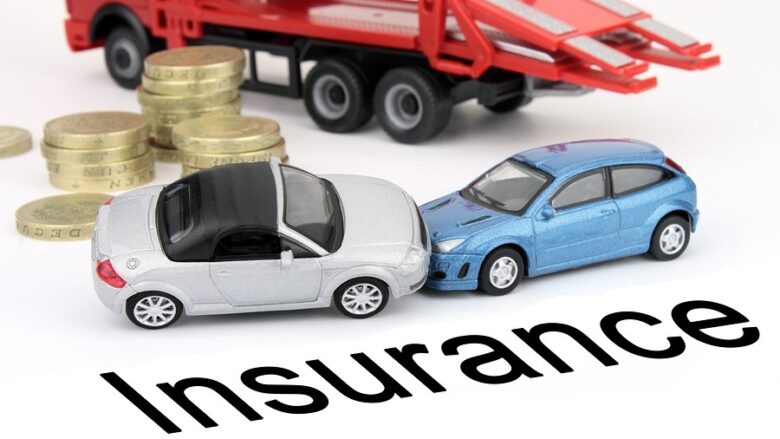Car insurance is more than a legal necessity—it provides your safety net against unpredictable driving. Take the time to understand your coverage needs, compare quotes, and ask any pertinent questions before making your purchase decision. Discover state minimums as well as optional coverage options such as medical payments coverage, rental reimbursement coverage, and roadside assistance. It is also wise to conduct due diligence on insurers—check the financial health of insurers as well.
1. Know Your Limits
Knowing your limits is key when making smart car insurance decisions, from meeting state minimum requirements to going beyond. Liability coverage provides protection from injuries sustained by others or damage done to their property caused by accidents you cause.
However, if your liability limits fall short of covering all costs associated with an accident you cause, any expenses beyond this threshold could fall on you as a responsibility. To protect yourself against this possibility and reduce risk, consider purchasing an umbrella policy with higher coverage limits; while this may raise premium costs slightly more, increased protection often makes up for it.
2. Know Your Options
Purchasing car insurance as your first independent step can be both exciting and daunting, since most states require it before registering a vehicle. But by working together and planning ahead, purchasing auto coverage should become simpler over time.
Shoppers looking to save money can also consider bundling their car and home or business policies or using third-party ratings as an additional method for comparison shopping. Once armed with the information necessary, shop around to find the best rate. As your life changes, make sure to keep your coverage needs in mind while regularly reviewing your policy.
3. Get a Quote
Get quotes from different insurance providers before making your selections. You can do this through an independent agent or broker or directly on each provider’s website. Insurance carriers use various factors to establish your premium, so rates can differ dramatically. Insurers typically require basic personal information from you, such as name, address, social security number, and marital status, as well as details on your vehicle, such as make, year, VIN number, and safety features, in order to determine your premium rate.
Compare quotes carefully by paying attention to coverage limits, deductibles, and policy terms when making comparisons. Also use resources like Standard and Poor’s for credit checks on insurers.
4. Shop Around
Car insurance is an investment, so finding the best price and policy are of utmost importance. Prices depend on a number of different factors; gathering quotes from multiple providers will allow you to better understand what it costs based on customer service, claim filing options, and coverage types offered by each.
Use websites known as aggregators or comparison tools to make the process of searching multiple providers more manageable, saving both time and money by allowing you to compare rates all in one convenient location, including any potential discounts like good student, loyalty, or bundling policies.
5. Review Your Policy
An insurance policy review can be an excellent way to ensure you’re paying only for coverage you need and taking full advantage of discounts available to you. Plus, this review gives you an opportunity to discover new policies that could fill gaps and provide added protection.
As life changes and you experience major transitions—moving, getting married, or having children—changing jobs/commuting times may all affect the rates on your policy; make sure to review it when things happen that could have an effect on it. Examine your policy’s Declarations Page carefully, which lists its coverage limits, deductibles, premium, and agent contact details.
6. Keep a Clean Driving Record
Maintaining a spotless driving record is one of the key factors in determining car insurance premiums. A traffic violation or two could make insurers consider you a high-risk driver, raising premiums significantly. Many states employ point systems that penalize drivers who commit multiple infractions. For more information on how these systems operate in your state, contact your DMV directly.
Keep in mind that older points may drop off your record after a certain time has passed (known as the look-back period). To speed up this process, take advantage of any defensive driving courses or driver improvement classes to remove points from your record.
7. Get a Telematics Device
Insurance companies increasingly offer tracking programs that enable drivers to save money on car insurance with plug-in devices or smartphone apps that provide information about driving behavior to create more accurate risk profiles and offer personalized rates. Telematics programs use data gleaned from these tracking programs as part of the risk profile creation process and offer tailored rates based on driver habits.
These devices monitor your idling time, driving speed, hard braking frequency, and more. In case your car is stolen, they can even help locate it! Fleets that implement safe-driving policies often see insurance costs decline through safe-driving initiatives and reduced insurance premiums; furthermore, these devices work together with rapidly advancing technologies like lane departure warnings and collision avoidance systems for maximum effectiveness.
8. Drive Safely
Few things offer as much freedom and adventure as driving on open roads, yet it’s essential to keep in mind that driving can be a dangerous activity with many factors contributing to accidents.
Distracted driving is one of the leading causes of accidents. Avoid eating or texting while driving, and stay vigilant about where your travels are taking you. Defensive driving means leaving enough distance between your vehicle and that in front of you and using turn signals correctly. Also be sure to check weather and road conditions prior to setting out on any long drives.
9. Get the Right Coverage
Car insurance is an essential necessity, and understanding all your options, coverages, and rates is vital in selecting an adequate policy that suits your needs and meets state requirements, vehicle value, and your budget when selecting one.
Consider adding coverages such as comprehensive and collision to protect your vehicle from damage and theft, choosing an affordable deductible in case of an incident. Or reduce your policy to the state minimum while opting out of certain optional coverages to save money.




